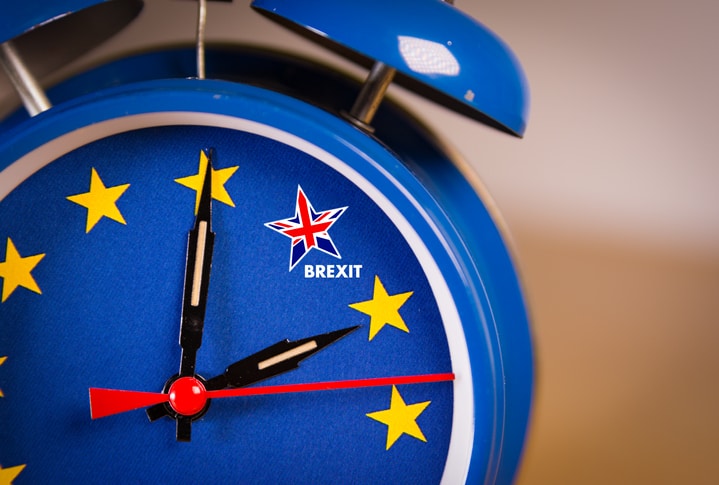If we rewind to six months ago, the largest driver behind the movements in the FTSE 100 stock index was Brexit. The general election, which was held in December, had that issue at its heart. Following the election result, the FTSE 100 index surged higher, with sentiment running positive that finally economic uncertainty could be over.
Yet the Covid-19 pandemic has seen an unprecedented shift in investors’ thinking so far in 2020. The sudden rise of the virus, and the harshness with which it has affected businesses the world over, are largely unparalleled. But with growing signs that the virus has been contained, and plans to reopen economies, concern could fade.
For several reasons, this could mean smart investors should already be starting to think about Brexit again, as a key influence on the price of their investments.
No Brexit extension
In recent weeks, comments from the UK Government have been very clear on the Brexit stance. We’re still being told the government will say no to any extension beyond the end of 2020 if the EU asks for it. Some may have thought that the impact of the virus would see negotiations pushed back, but that’s not the case (at least that’s the message so far).
This increases the chances of no agreement being reached by the two sides due to the time lost thus far. Should we have little Brexit breakthrough over the next three months, then autumn could see volatility rising for the FTSE 100 index. This would likely mimic the sharp moves following the news headlines we saw over the course of last year.
The FTSE 100 has a short-term memory
You could argue that the FTSE 100 index is already moving on from focusing on the Covid-19 pandemic. The market saw the second best April performance in a decade. Another example of this short-term memory of stock markets can be seen in the US. The NASDAQ index (which has a lot of tech names listed) is even back at January levels. This means it has seen a positive performance in 2020.
Why this could push Brexit back to the foreground is that investors will be looking ahead now to what the next big event could be. Markets in the US are starting to look towards the Presidential elections. Here on the other side of the pond, they could turn to Brexit.
My Foolish takeaway
So what do the above musings mean for my investing strategy? At the back end of last year I wrote a piece here, discussing where best to look. I’d continue to look to buy domestic firms within the index, as these will perform better if we see a Brexit agreement before the end of the year. Look to housebuilders such as Taylor Wimpey to lead the way as demand picks up.
Also, I’d look to buy defensive stocks (still with a domestic tilt). Some good examples are Tesco and J Sainsbury. These supermarkets should perform robustly, even if the UK does not have an agreement by the end of the year.
Ultimately, try and think ahead of the curve, to avoid being caught out later this year.








